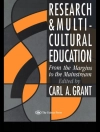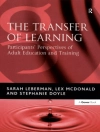There is no term so heavily contested in social science literature/nomenclature than ‘Development’. This book brings Indigenous perspectives to African development. It is argued that contrary to development as we know it not working, a greater part of the problem is that conventional development approaches that work have in fact not truly been followed to the letter and hence the quagmire. All this is ironic since everything we do about our world is development. So, how come there is “difficult knowledge” when it comes to learning from what we know, i.e., what local peoples do and have done for centuries as a starting point to reconstructing and reframing ‘development’? In getting our heads around this paradox, we are tempted to ask more questions. How do we as African scholars and researchers begin to develop “home-grown solutions” to our problems? How do we pioneer new analytical systems for understanding our communities and offer a pathway to genuine African development, i.e., Indigenist African development? (see also Yankah, 2004). How do we speak of Indigenist development mindful of global developments and entanglements around us? Can we afford to pursue development still mired in a “catch up” scenario? Are we in a race with the development world and where do we see this race ending or where do we define as the ‘finishing line’? A Publication of the Centre for School and Community Science and Technology Studies [SACOST], University of Education, Winneba, Ghana
İçerik tablosu
Acknowledgements; Introduction Indigenist African Development and Related Issues from a Transdisciplinary Perspective: An Introduction; Re-Thinking Development and Growth Theories for Africa: Issues in the 21 st Century?; The Coloniality of Development: Reframing South-South Co-Operation and Resistance; Me to We: Unpacking the Realities of White Privilege in Development Praxis; Why Teach Social Studies From a Global and Multicultural Perspective?; Improving Education Standards in Africa: The Place of the University of Education; The Contributions of Continuous Assessment to the Improvement of Students’ Learning of School Science: A Case of Ghana; Enhancing Scientific Literacy of the African Learner: Possibilities and Challenges; Resistances in the Restoration of Local Spiritual and Cultural Values in Science Education: The Case of Ethiopia; Plenty of Food but Not Enough to Eat: Hunger and Power in Ghana; Indigenous Women Science Teachers of Tanzania: Implications of Power and Knowledge Focus on Women Farmers as Science Teachers; Indigenizing the State?: Indigenous Governance in Africa and Its Potential for State Reform; Walk and Talk In Solidarity: A Canadian Experience on the Need for A Purposeful Coalition Between Aboriginals/Natives and African Immigrants: What’s in for Africa’s Development?; Indigenist African Development and Related Issues from a Transdisciplinary Perspective Towards a Conclusion:; About the Contributors;












